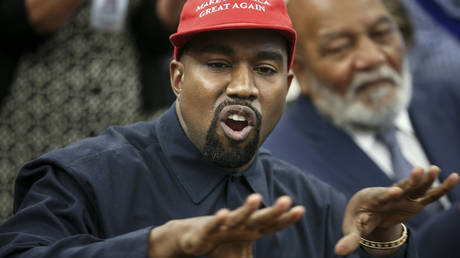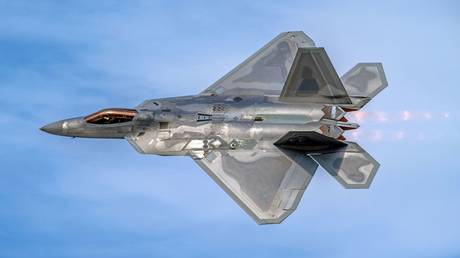
The sportswear giant could miss out on more than $1 billion after severing ties with the controversial rapper
Adidas’ decision to end its partnership with rapper Kanye West could push the sportswear company’s operational losses past $1 billion in lost earnings, its chief executive has said.
The apparel giant announced in October that it would not be continuing its nine-year relationship with West after he posted a series of anti-Semitic statements on social media.
In a statement released on Thursday, Adidas said its financial planning for the forthcoming year reflects “significant adverse impact from not selling the existing stock” should it be unable to “sell or repurpose” leftovers from its ‘Yeezy’ collection. Failure to sell the stock could cost the company as much as $534 million in lost profits.
“The numbers speak for themselves,” said Adidas CEO Bjorn Gulden, who joined the firm in January from rival sportswear brand Puma. “We are currently not performing the way we should.” He also said that he expects “one-off costs” of $213 million due to a “strategic review” of the business.
The company also said it expects sales to drop this year by a margin in the high single digits. Shares in Adidas lost 11% of their value on Friday after the announcement that it would end the year operating at a financial loss for the first time in three decades. These factors have contributed to the firm’s loss-of-earnings estimates potentially being north of $1 billion for 2023.
West, who also goes by the name Ye, was dropped by Adidas last October after making several remarks that were determined by the apparel brand to be anti-Semitic in nature. In December, he appeared on InfoWars shows hosted by Alex Jones, where he made statements in support of Adolf Hitler and the Nazis. West had also previously said, “I can say anti-Semitic s**t and Adidas cannot drop me.”
In addition to the West saga, Adidas has faced other financial issues in recent times. In March, it announced it would close its Russian outlets and suspend online stores following the outbreak of the Ukraine conflict. It also saw its business in China affected by the strict Covid lockdown practices introduced by Beijing.




